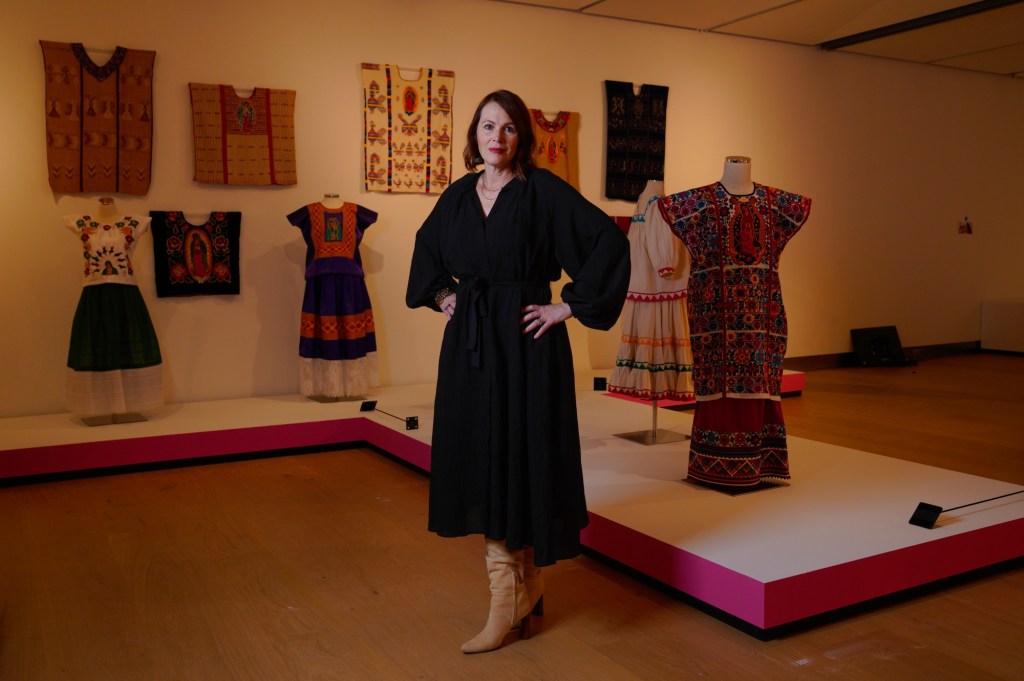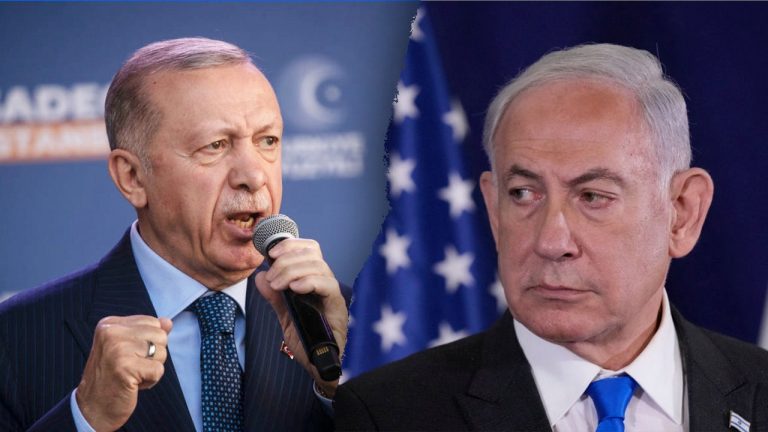
For nearly three decades, a little-known federal agency has provided tens of millions of dollars in funding and support to museums and libraries throughout San Diego.
The San Diego Zoological Society, the San Diego Botanic Garden and several local Indian tribes have also benefited from grants awarded by the Institute of Museum and Library Services.
The independent agency was created by Congress in 1996 to “advance, support and empower America’s museums, libraries and related organizations.” Last year, it put more than $270 million toward these goals.
But a recent executive order by President Donald Trump led to the institute’s staff of roughly 70 people being placed on administrative leave Monday.
The March 14 order calls for the IMLS, along with six other agencies, to be “eliminated to the maximum extent consistent with applicable law.”
Trump also ousted IMLS acting director Cyndee Landrum and appointed Deputy Labor Secretary Keith Sonderling to head the agency.
In a statement, Sonderling vowed to “revitalize IMLS and restore focus on patriotism, ensuring we preserve our country’s core values, promote American exceptionalism and cultivate love of country in future generations.”
For museum leaders around San Diego, what this means for the future of IMLS and their own institutions isn’t clear.

Many of the grants awarded last year are for multi-year projects and haven’t been fully paid. The executive order requires the Office of Management and Budget to reject all funding requests unless the money goes toward shutting down the agency.
An email seeking clarification on the grants, sent to the media contact for IMLS, bounced back.
Last year, San Diego organizations were awarded more than $1.3 million in IMLS grants. The largest, $646,000, went to the San Diego Zoological Society to develop a cryopreservation storage repository for “exceptional” plants that can’t be preserved through traditional seed banks. Between 15 and 25 percent of all flowering plants fall into the “exceptional” category.
Also last year, several local Indian tribes received grants under a program aimed at helping establish and maintain tribal libraries as part of a larger effort to preserve Native American cultures and languages.
In an email to members last week, Jessica Hanson York, executive director of Balboa Park’s Mingei Museum, warned that cuts to IMLS could “devastate the only federal agency dedicated to America’s museums.”
The institute’s funding is a tiny fraction of the federal budget, yet the organizations it assists provide far-reaching community benefits, Hanson said.
“IMLS makes up only 0.0046% of the overall federal budget while museums, in turn, generate $50 billion in economic benefits to the American economy and support more than 726,000 jobs,” she wrote.
York told The San Diego Union-Tribune last week that the executive order was a bellwether, portending cuts to federal agencies like the National Endowment for the Arts and the National Endowment for the Humanities.
Trump tried to eliminate both during his first term but was rebuffed by Congress. This week, The New York Times reported that NEH staff had been told to expect layoffs and that grants that hadn’t been paid out would likely be cancelled.
Micah Parzen, CEO of the Museum of Us, also in Balboa Park, described the Trump administration’s targeting of IMLS as “a gut punch.”
“The crisis is of such huge proportions,” he said. “It’s not just about individual projects. It’s about what has long been a federal partnership that has really helped all of our institutions become more affordable, more diverse, more community centered.”
According to usaspending.gov, which tracks government contracts, much of the grant money awarded by IMLS last year has been “obligated” but not “outlaid,” meaning it’s unlikely organizations will receive money they’d been promised by Congress.
“So work we’ve already done that is subject to reimbursement under the terms of the grant — that’s in jeopardy,” Parzen said. “Certainly future work on existing projects is in jeopardy, and future projects, the kind of work we really value as an organization — community-centered work that tells the truth about history instead of erasing it.”
Lauren Lockhart, executive director of the La Jolla Historical Society, called the potential loss of IMLS “devastating.”
The nonprofit, which operates a small gallery, research library and records archive, had been counting on a $52,778 IMLS grant to hire two paid interns to catalog and digitize nearly 1,800 photographs, postcards and oral history recordings at risk of deteriorating.
“For smaller institutions like ours, IMLS expands our reach, our service to the community and our ability to protect the historic materials in our collection in huge strides unthinkable without their support,” she said.
Patrick Stewart, CEO of the San Diego Library Foundation, said IMLS funding has helped local libraries provide adult literacy programs, youth career development and homework assistance.
“The library is a core public service and a community cornerstone that needs to be safeguarded for our city’s future,” he said.

Last week, the IMLS board of directors sent Sonderling a letter warning that grants, contracts and other agreements approved by Congress “may not be discontinued or delayed under an Executive Order or other executive action.”
Other promised grants include nearly $37,000 to the San Diego Botanic Garden to partner with Ocean Knoll Elementary School in Encinitas to turn Ocean Knoll Canyon into “a living laboratory where teachers, students and community members will engage in environmental education.”
Two years ago, the garden got $39,500 from IMLS to offer free visits to seniors and low-income families and explore ways to address the mental health challenges.
IMLS funding has been vital to helping the San Diego Museum of Natural History catalog and preserve its collection of 9 million specimens of birds, marine life, plants, insects, minerals and fossils. In September, the museum was awarded a two-year, $250,000 grant to continue the work but has yet to receive any money.
On Tuesday, the museum announced a $10 million gift from Dr. Irwin Jacobs, the co-founder of Qualcomm, to establish the Joan and Irwin Jacobs Center for Science and Conservation.
Museum spokesperson Rebecca Handelsman called it “hugely important in the face of federal funding uncertainties” but added that museums can’t rely solely on philanthropy.
“Private philanthropy and government funding are important pieces of nonprofit budgets,” she added. “Both are critical, but at the same time, neither one replaces the other. Organizations need to rely on a diversified funding base in order to survive and thrive.”
A letter the leaders of several national organizations — including the American Alliance of Museums and the American Association for State and Local History — also sent Sonderling last week notes that cuts to IMLS would be politically unpopular and asks to meet with him.
“According to public opinion polling, 96% of Americans would think positively of their elected officials taking legislative action to support museums, regardless of political persuasion or community size,” the letter says. “97% of Americans view museums as educational assets, and 89% see that museums contribute important economic benefits to their community.”
Dan Ashe, president and CEO of the American Association of Zoos, co-signed the letter.
“We’re trying to take a calm approach,” he told the Union-Tribune, “asking him for an audience so that we can talk about the importance of museums writ large, including aquariums and zoos and science centers and the jobs that we provide and the economic impact across the country — just to make sure he’s introduced to the range of positive impacts these facilities have on all Americans.”
Originally Published:





